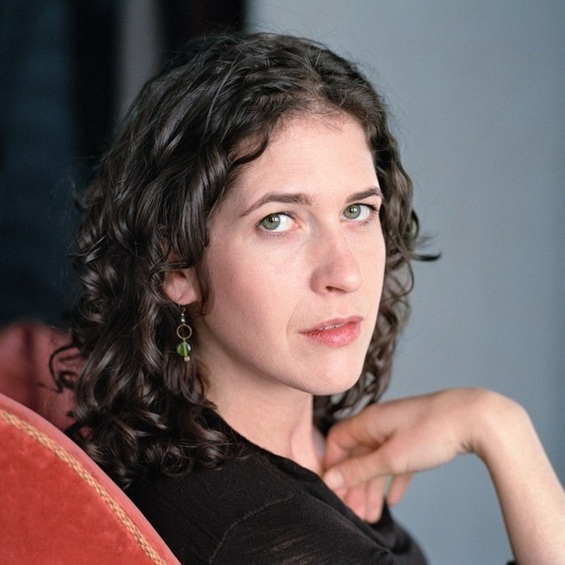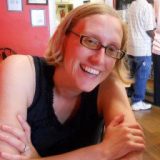New England’s largest annual literary event, The Boston Book Festival, is this Saturday, October 27. To celebrate, the city chose one short story, “The Lobster Mafia Story,” for its One City One Story program and has been giving out 30,000 copies at farmers markets, libraries, YMCAs and online. We chatted with writer Anna Solomon about writing short stories and novels, and what it was like growing up Jewish in Gloucester.
Your short story “The Lobster Mafia Story” is being distributed all over the city of Boston as part of The Boston Book Festival. What’s a nice Jewish girl doing writing about lobsters and the mafia?
That’s a fair question. I am Jewish, and my family was very active in our synagogue – my mother was its first female president! – but this wasn’t in Newton or Brookline, it was in Gloucester, and outside of synagogue, my world was almost entirely non-Jewish. It was WASP, and Italian, and Portuguese, and Irish. I felt part of these communities, to a large degree – when you’re a kid, or even a teenager, I think categories and boundaries feel a lot more fluid.
Later on, I worked as an environment reporter, and a story about fishing brought me back to Gloucester, and I got to go out on commercial fishing boats for the first time. In some ways being a reporter but also a native was a little like being Jewish and a native – I was both outside and inside. I loved the boats, the nets, even the smells. I learned to tell the difference between different kinds of flounder, and between the Irish and Italian boats. And later still, when I came across a book called The Lobster Gangs of Maine, I was fascinated by the small-scale mafia scene it depicted. So I brought it back to the harbor I knew best.
Your novel, The Little Bride, which came out last fall, takes place in a desolate area of South Dakota. Did you find yourself identifying with Minna, the only Jew in 19th-century Badlands?
Absolutely. I didn’t really know this when I started writing the book, but later, when I thought about why I was so drawn to the idea of Jewish pioneers in the West, I realized it was because it felt like a version (albeit an exaggerated one) of my own experience. And if I look at many of my short stories, too, when I write about Jews I tend to locate them in places where they don’t seem to quite belong.
What’s more difficult, writing short stories or a novel?
They’re difficult in such different ways. A novel takes such stamina, and persistence, and vision, too – you have to be able to work on so many levels (sentence, scene, chapter, book) all at once. But it’s also a more forgiving form, in many ways, than a short story. Stories have to be perfect, or nearly so; they’re a little like puzzles, and it can take years to find a missing piece, or realize that you’ve had the right piece all along, wedged under the rug. The initial draft is fun, but most of the time you’re rewriting, revising. I am, at least. I spent years and years on “The Lobster Mafia Story” – not all in one push, of course, but I had to keep returning to it, working on it, leaving it for a while, returning again. It was a beast.
You’re from Gloucester and now you live in Rhode Island. Who has the better seafood?
Great, here’s my chance to piss a whole bunch of people off! Honestly, the quality of the fresh fish is equal in both places – it’s fantastic. The difference (in Providence, at least, which is where I live) is the fish markets. In Gloucester, there’s Connolly’s, which has great prices on fish straight off the docks, and there are a bunch of other, newer places now, too. In Providence, there’s excellent fresh seafood at the farmers market, when it’s open, but apart from that you’re left with Whole Foods, which apparently gets its fish from Gloucester! That said, I’m sure there are some good fish markets in some of the Rhode Island fishing towns. So I’m just going to call it a draw.

Check out other Boston Book Festival events with Jewish content.
Four Questions is a weekly interview column featuring interesting people connected with the Greater Boston Jewish community. Find past columns here. Have an idea of someone we should interview? Email Molly!
This post has been contributed by a third party. The opinions, facts and any media content are presented solely by the author, and JewishBoston assumes no responsibility for them. Want to add your voice to the conversation? Publish your own post here. MORE



